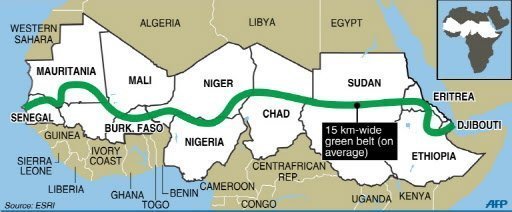World Wetlands Day is a global awareness campaign celebrated every year on 2nd February to highlight the value of wetlands. This day also marks the anniversary of the Convention on Wetlands, an intergovernmental treaty adopted in 1971 and which now has a global membership of 172 countries (Nigeria included), officially known as Contracting Parties.
World Wetlands Day is a global awareness campaign celebrated every year on 2nd February to highlight the importance and state of our Wetlands.
Wetlands
A wetland is simply a land that is covered by water (could be fresh water, salt water, or a mixture of both). A wetland has its own ecosystem and a variety of plants and animals that inhabit it such as alligators, snakes, turtles, and salamanders. A wetland does not only consist of reptiles, as some birds like plovers, grouse, herons, etc are birds found in wetlands around the world.
The United States Geological Survey (USGS) described wetlands as transitional areas, sandwiched between permanently flooded deepwater environments and well-drained uplands, where the water table is usually at or near the surface, or the land is covered by shallow water. They include mangroves, marshes (salt, brackish, intermediate, and fresh), swamps, forested wetlands, bogs, wet prairies, prairie potholes, and vernal pools.
Image: A wetland
Image source: Pixabay
Image: A wetland
Image source: Pixabay
Wetlands in Nigeria
Nigeria is a vast nation blessed with numerous natural resources among which are wetlands. Some of the Wetlands in Nigeria include the Imo River, Lake Chad, Ogun-Osun River, Niger Delta, Niger River, Benue River, and Qua Iboec River estuary. They are very important to the ecosystem of the nation and home to many natural resources ranging from plants, and animals to crude oil. Oil spillage has been a major source of concern for the loss of the wetlands ecosystem in Nigeria, and the concern keeps growing as the oil keeps spilling due to oil pipeline vandalism or during extraction.
Image: Oil gushing from oil wellhead
Source: Reuters
Image: Oil spilled on a wetland
Source: The Guardian
Importance of Wetlands
Habitat
Wetlands house a variety of plants that are very essential to our ecosystem. They are also home to a variety of animals ranging from vertebrates and reptiles to mammals whose existence is solely in wetlands.
Water quality
Wetlands improve the quality of water in the ecosystem by trapping the runoff water and filtering it through chemical, biological, and physical processes before the water reaches the open water.
Flood Control
The process of filtering the runoff water prevents the water from going to the open water directly. It slows down the flow of water that goes into the open waters and thereby prevents its overflow. Additionally, The roots of the plants in a wetland also hold the soil together and make it more resistant to erosion.
Recreation and Aesthetics
Wetlands are pleasing to the eye and sometimes included in landscape designs. Wetlands are serene natural environments that serve as destination spots for a lot of people for recreation and leisure.
WWD 2023 Theme
The theme for this year’s world wetlands day is Wetlands Restoration. Wetlands are disappearing three times faster than forests, and more than 35% of wetlands have been degraded or lost since 1970. Reversing this trend is critical and it will take the collective effort of individuals, the private sector, and governments to restore the wetlands to what they once were.
The major responsibility of protecting the wetlands rests on the government and they can start by spreading awareness on the importance of our wetlands, their current states/conditions, and how we can all join hands to save them. Government can also protect the Wetlands through zoning (zoning developments that could harm the Wetlands away from the Wetlands) and by monitoring the activities that go on, in and around the Wetlands. Individuals and organizations can help the Wetlands by properly disposing of their wastes so these wastes won’t end up in the Wetlands.
All hands are needed on deck for the wetlands restoration and it starts with you and me. The least we can do is to raise awareness for the saddening conditions of our wetlands and highlight what is at risk if we continue to lose our precious wetlands. Everyone has a responsibility to spread the message beyond 2nd February by amplifying the issues using the hashtags (#GenerationRestoration, #ForWetlands) for our social media posts concerning the wetlands. For more information, you can visit the official website of WWD.

